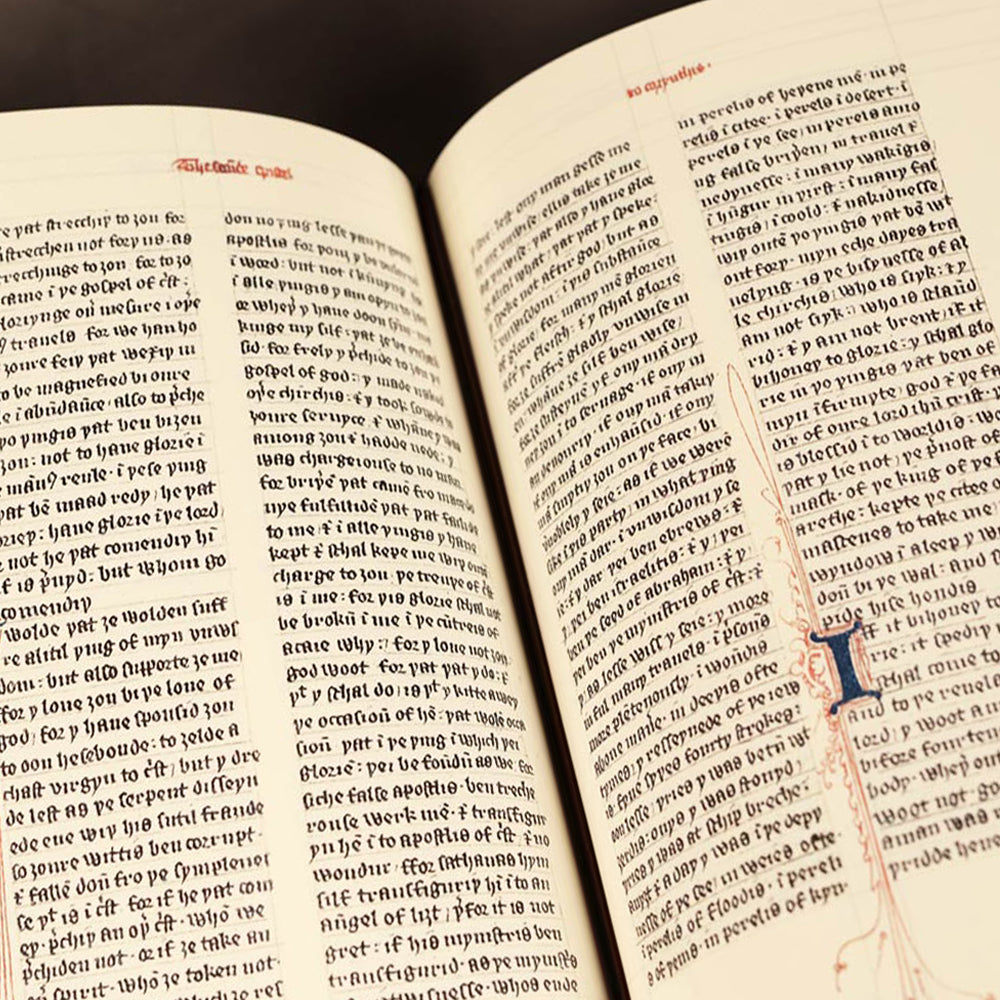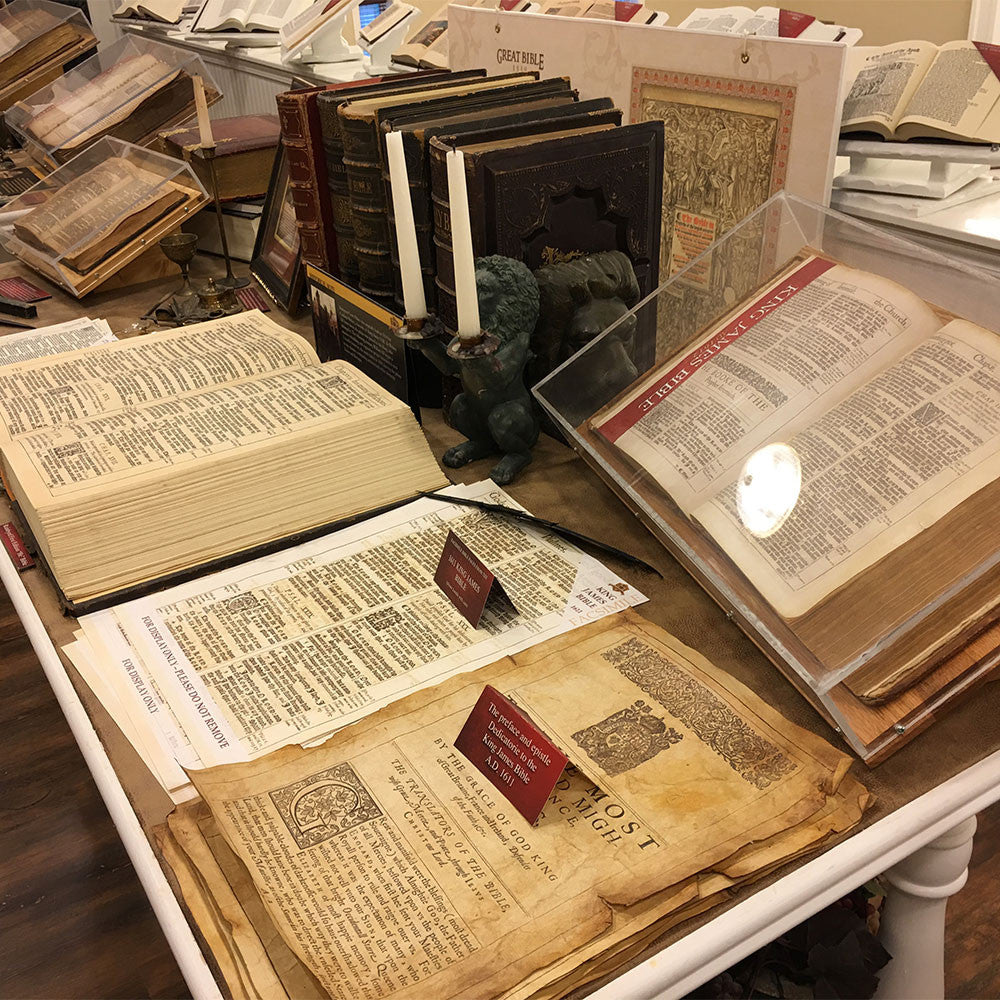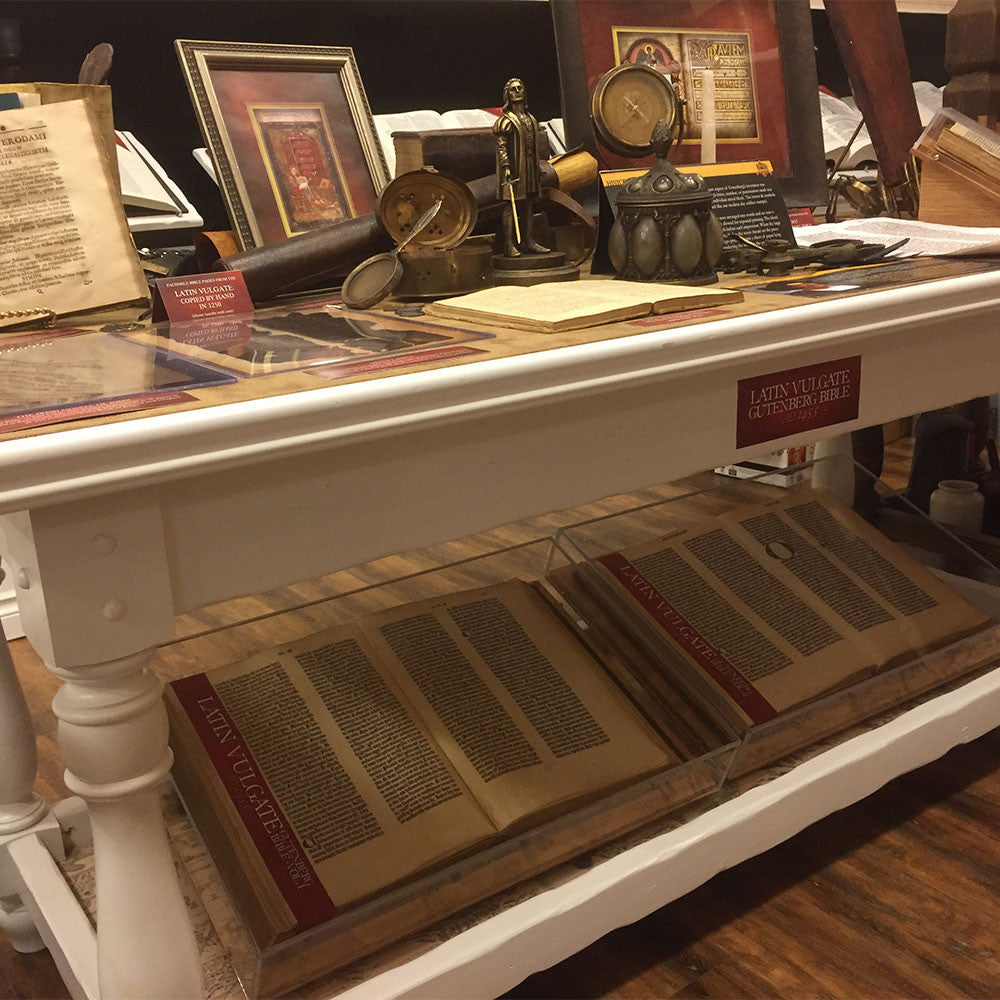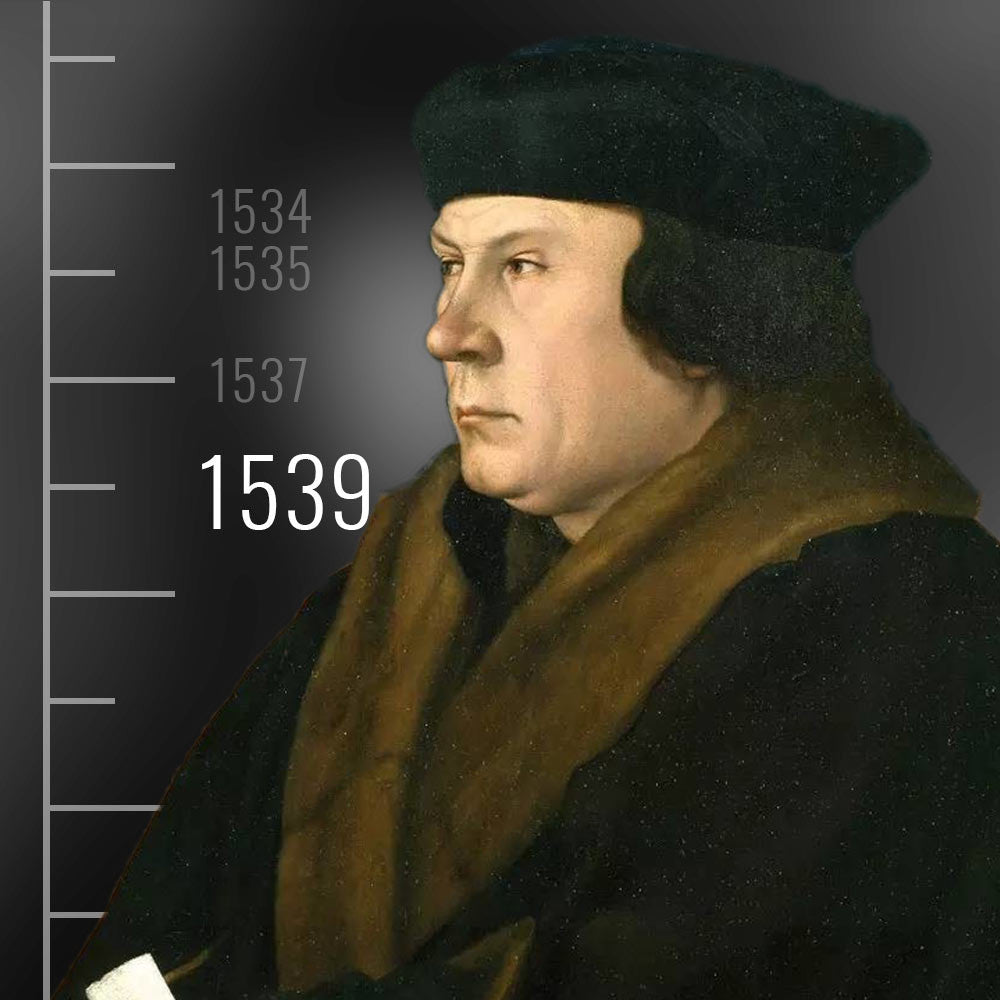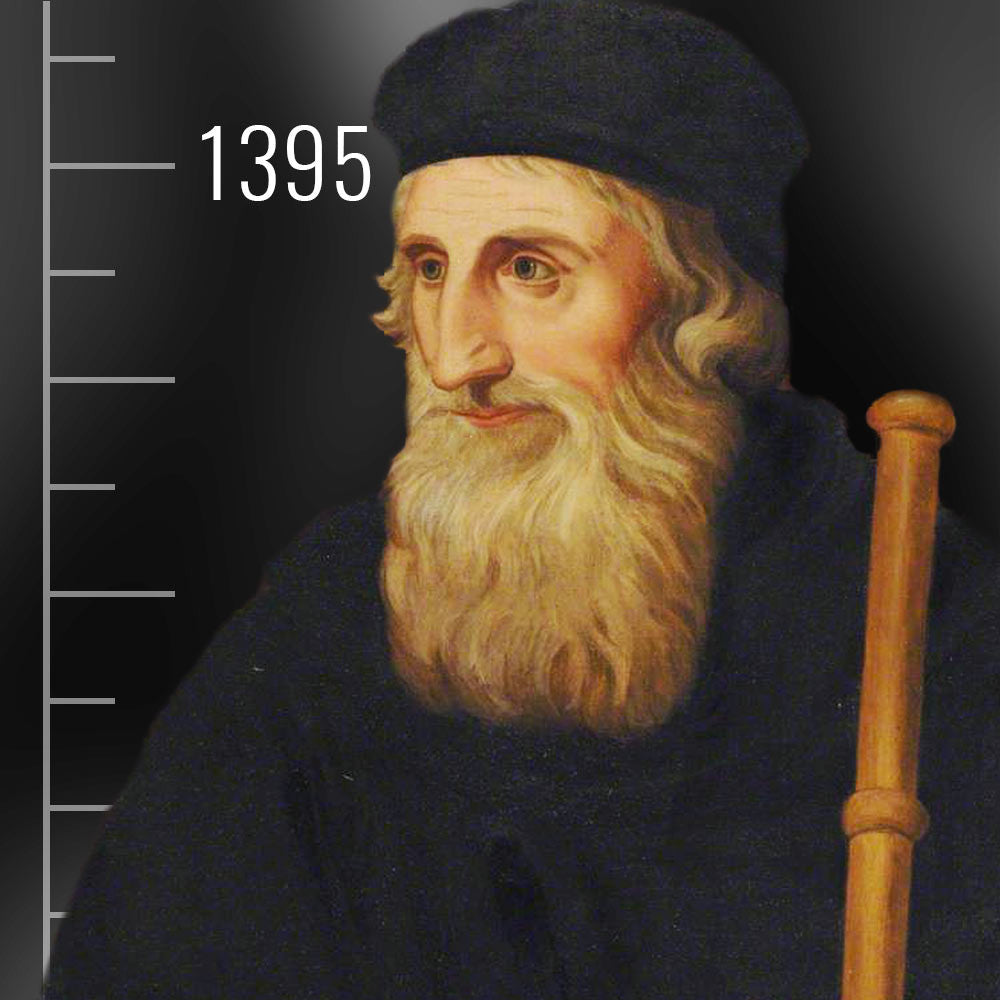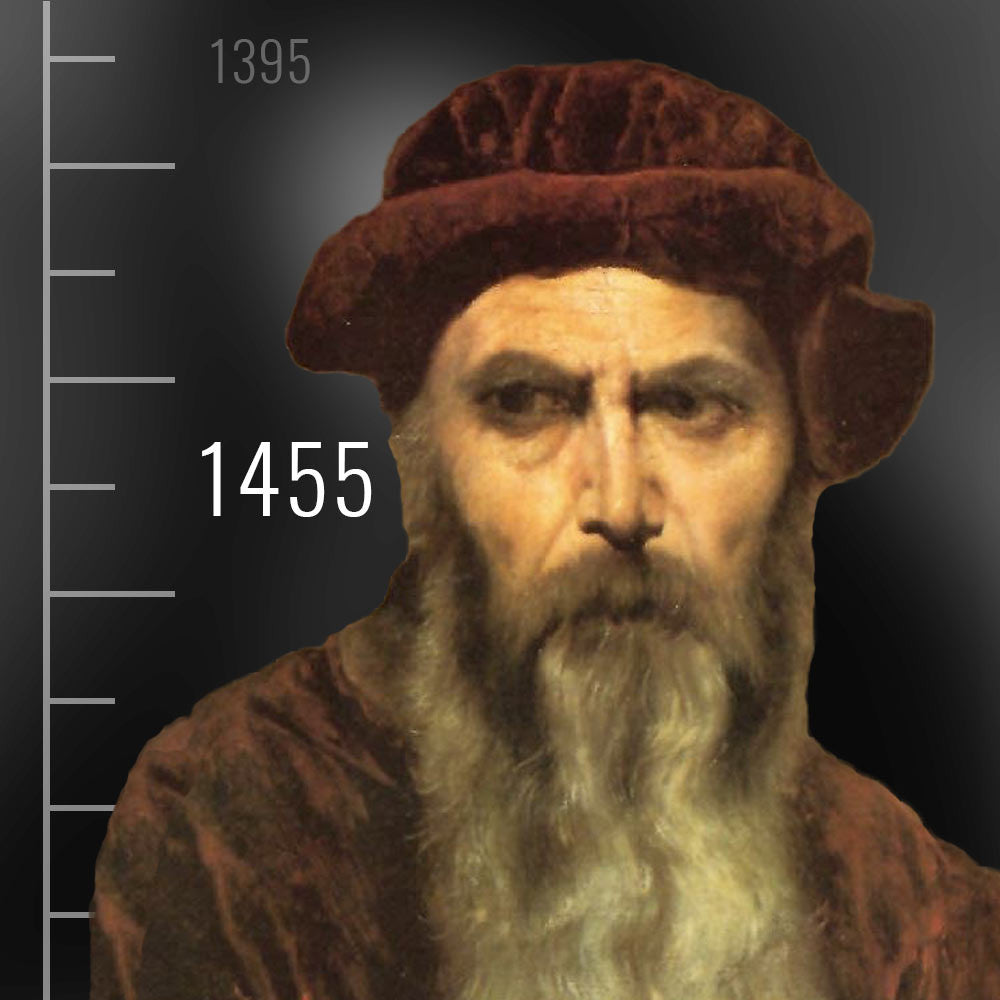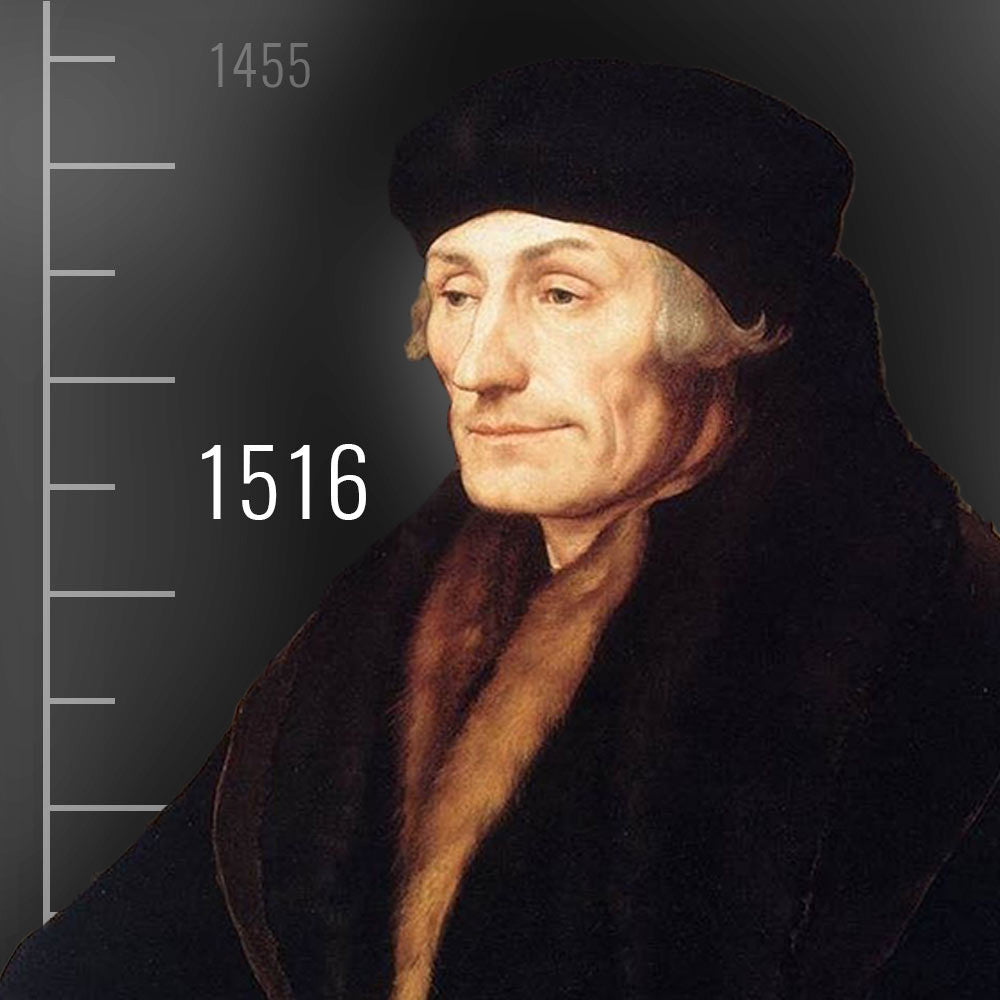In 1538, Thomas Cromwell, Vicar General and Secretary to Henry VIII, directed the clergy to provide "one book of the Bible of the largest volume in English, and the same set up in some convenient place within the said church that ye have care of, whereas your parishioners may most commodiously resort to the same and read it."
Called the "chained Bible" because it was chained to the pulpits, the Great Bible helped rekindle the desire to own a personal copy of the Word of God, and sparked a flame in the hearts of those who would later translate the Geneva Bible, the Bishop's Bible, and the King James Version.
The Great Bible, printed in 1539, is known as one of the most beautiful Bibles ever printed. At the time of the translation, two versions were already in print -- the Matthews Bible and the Coverdale Bible. Because Coverdale's Bible was not translated from the original texts, and the Matthew's Bible was under great suspicion of its origin as a Tyndale Bible, Thomas Cromwell and Archbishop Thomas Cranmer commissioned Miles Coverdale to complete a whole revision of the Bible.
Coverdale began work immediately, using the Matthew's Bible as a base, and revising where needed. By 1539, printing had started in Paris; however, the inquisition in France was on, and the printer was arrested. Rather than burning the printed pages, the French Inquisitor-General sold them as waste paper. Through shrewd management, Thomas Cromwell was able to buy the Bible pages and transport them back to England, where they finished the work.
In April of 1539, the first edition of the Great Bible appeared, also known as the "Cromwell Bible," the "Cranmer Bible,' and the "Chained Bible." Thomas Cromwell issued an injunction that a copy be set up in every church, and a reader was appointed so that even the illiterate could learn the Word of God as they desired. With this action, the Great Bible, funded by King Henry VIII, became the first Bible authorized by the government for public use.

